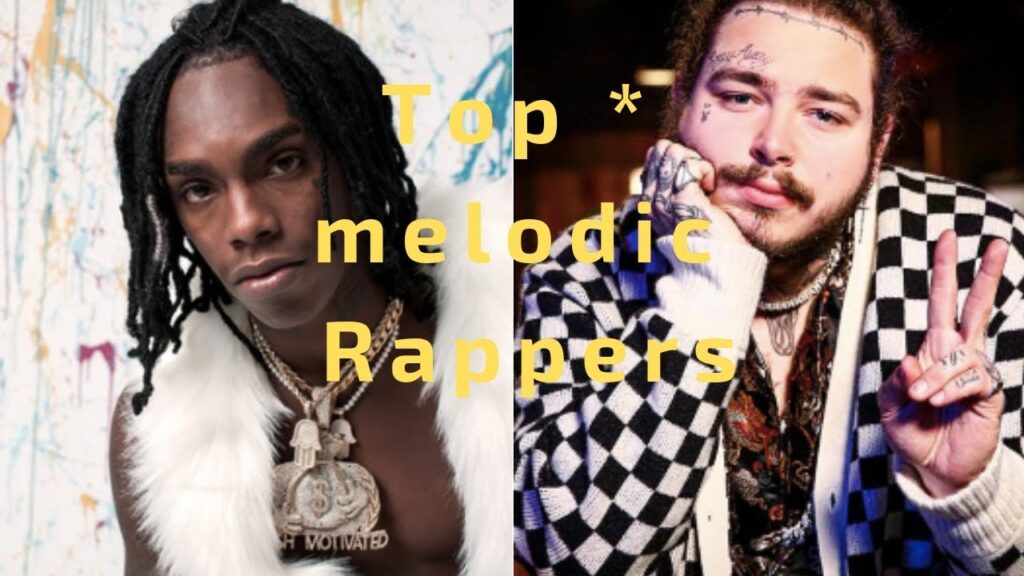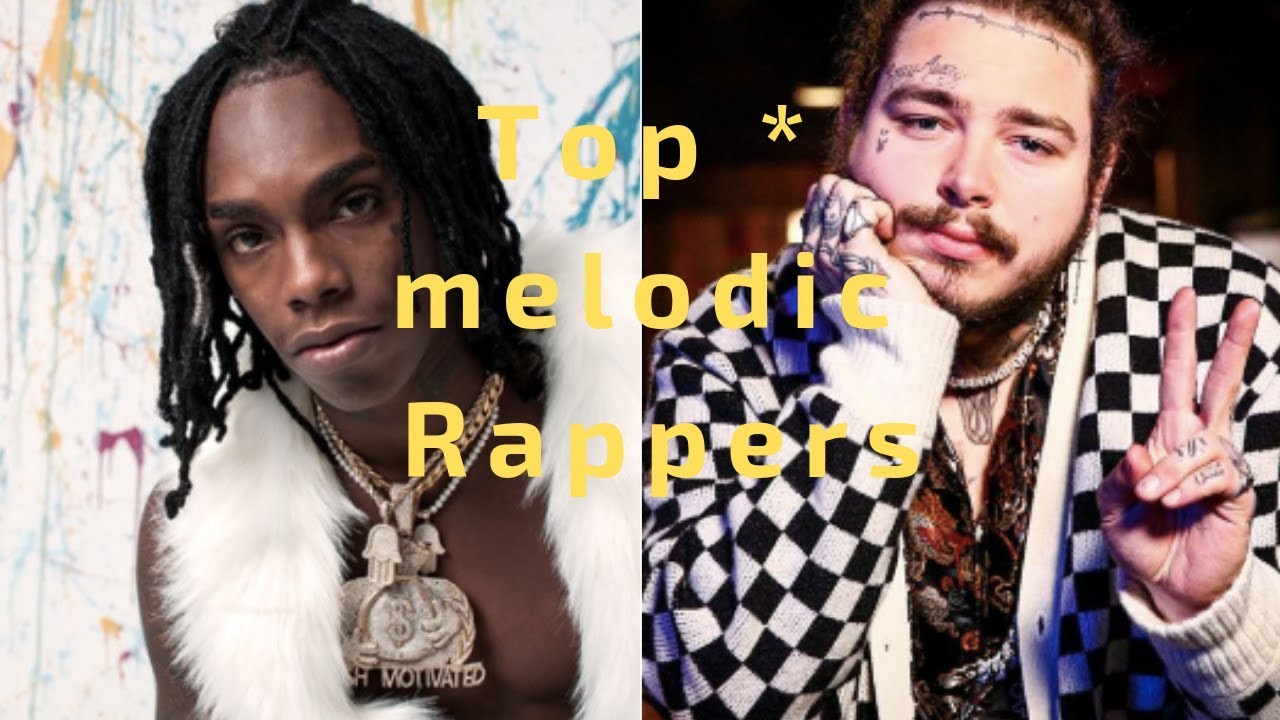
The Rise of Melodic Rappers: Redefining Hip-Hop’s Soundscape
Hip-hop, a genre known for its lyrical dexterity and rhythmic complexity, is constantly evolving. One of the most significant shifts in recent years is the emergence and increasing popularity of melodic rappers. These artists, who prioritize melody and vocal harmony as much as, if not more than, traditional rap techniques, are reshaping the soundscape of contemporary hip-hop. This article explores the origins, characteristics, impact, and future of melodic rappers.
Origins of Melodic Rap
The roots of melodic rap can be traced back to the late 2000s and early 2010s, with artists like Kanye West, Drake, and Kid Cudi experimenting with autotune and incorporating singing into their rap verses. These pioneers laid the groundwork for a new generation of artists who would further blur the lines between rapping and singing. Kanye West’s album *808s & Heartbreak* (2008) is often cited as a pivotal moment, demonstrating the emotional depth and commercial viability of autotune-infused vocals in hip-hop. Drake, with his introspective lyrics and melodic delivery, solidified the trend, proving that vulnerability and melody could resonate with a wide audience. Kid Cudi’s distinct blend of rapping, singing, and alternative rock influences further broadened the genre’s horizons.
Key Characteristics of Melodic Rappers
Several key characteristics define melodic rappers and distinguish them from their more traditional counterparts:
- Emphasis on Melody: Unlike traditional rap, where rhythm and lyrical complexity take precedence, melodic rappers prioritize creating memorable melodies and vocal hooks.
- Use of Autotune: Autotune, a vocal processing effect, is often used to enhance or correct pitch, creating a smoother, more polished vocal sound. While controversial among some purists, autotune has become a signature element of melodic rap.
- Emotional Lyrics: Many melodic rappers explore themes of love, loss, anxiety, and depression in their lyrics, often with a confessional and introspective tone. This emotional vulnerability resonates with listeners who are drawn to the honesty and relatability of the music.
- Blurred Genre Boundaries: Melodic rap often incorporates elements from other genres, such as R&B, pop, and even rock, creating a hybrid sound that appeals to a diverse audience.
- Vocal Harmony: The layering of vocal harmonies and ad-libs creates a richer, more textured soundscape, adding depth and complexity to the music.
Impact on the Hip-Hop Industry
The rise of melodic rappers has had a profound impact on the hip-hop industry, influencing everything from production techniques to fashion trends. The increasing popularity of melodic rap has led to:
- Increased Commercial Success: Melodic rappers often achieve mainstream success, topping charts and selling millions of records. Their accessible sound and relatable lyrics appeal to a broader audience than traditional rap.
- Evolution of Production Styles: Producers are increasingly incorporating melodic elements into their beats, creating soundscapes that complement the vocal styles of melodic rappers. This includes the use of synthesizers, layered harmonies, and atmospheric textures.
- New Fashion Trends: Melodic rappers often set new fashion trends, influencing the style choices of their fans and the wider hip-hop community. This can include everything from designer clothing to streetwear.
- Greater Diversity in Hip-Hop: The emergence of melodic rap has created space for a wider range of voices and perspectives within hip-hop. Artists from diverse backgrounds are finding success by embracing melody and emotional vulnerability in their music.
Examples of Successful Melodic Rappers
Several artists have achieved significant success as melodic rappers. Here are just a few notable examples:
- Drake: A pioneer of the genre, Drake has consistently blended rapping and singing throughout his career, achieving unparalleled commercial success. His introspective lyrics and melodic delivery have made him one of the most influential artists of his generation.
- Travis Scott: Known for his psychedelic production and autotune-heavy vocals, Travis Scott has created a unique and immersive sound that has captivated audiences worldwide. His live performances are renowned for their energy and spectacle.
- Future: With his signature autotune and mumble rap style, Future has become one of the most influential figures in contemporary hip-hop. His music often explores themes of drug use, heartbreak, and success.
- Lil Uzi Vert: Lil Uzi Vert’s energetic performances and melodic delivery have made him a fan favorite. His music blends elements of rap, rock, and pop, creating a sound that is both catchy and innovative.
- Post Malone: Post Malone’s genre-bending sound, which incorporates elements of rap, pop, and country, has made him a global superstar. His heartfelt lyrics and melodic vocals resonate with listeners of all ages.
Criticism and Controversy
Despite its popularity, melodic rap has faced criticism from some corners of the hip-hop community. Some purists argue that it dilutes the genre’s core values, prioritizing melody over lyrical complexity and rhythmic innovation. Concerns have also been raised about the overuse of autotune, which some see as a crutch that masks a lack of vocal talent. Additionally, the focus on emotional vulnerability has been criticized by some as being overly sentimental or self-indulgent. However, proponents of melodic rap argue that it is simply a natural evolution of the genre, reflecting the changing tastes and sensibilities of contemporary audiences.
The Future of Melodic Rap
The future of melodic rap appears bright, with new artists constantly emerging and pushing the boundaries of the genre. As technology continues to evolve, we can expect to see even more innovative uses of autotune and other vocal processing effects. The increasing globalization of hip-hop will likely lead to further cross-pollination with other genres and musical traditions, resulting in even more diverse and experimental sounds. Furthermore, the rise of social media and streaming platforms has created new opportunities for melodic rappers to connect with fans and build their careers independently. The ability to share music directly with audiences and bypass traditional gatekeepers has empowered artists to take control of their own destinies. [See also: The Evolution of Trap Music] and [See also: The Impact of Social Media on Hip-Hop]
Conclusion
Melodic rappers have undeniably transformed the soundscape of contemporary hip-hop. By prioritizing melody, emotional vulnerability, and genre-bending experimentation, these artists have created a new and exciting sound that resonates with a wide audience. While the genre has faced criticism from some purists, its commercial success and cultural impact are undeniable. As hip-hop continues to evolve, melodic rap will likely remain a significant force, shaping the future of the genre for years to come. The fusion of rap and melody has opened up new avenues for artistic expression and commercial success, paving the way for a more diverse and inclusive hip-hop landscape. The influence of melodic rappers can be seen in the work of countless emerging artists, solidifying its place as a vital and dynamic subgenre within the broader hip-hop ecosystem. The key to its continued success lies in the ability of artists to innovate and push boundaries, while remaining true to the core values of hip-hop: authenticity, creativity, and self-expression. The journey of the melodic rapper is far from over, and the next chapter promises to be even more exciting and transformative.

